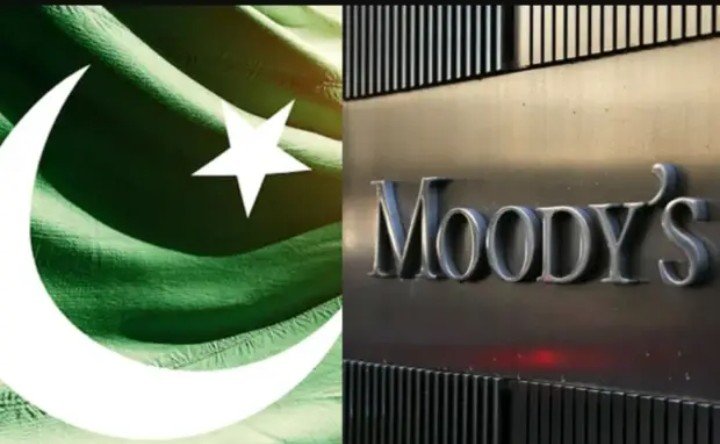In its latest assessment of Pakistan’s economy, global rating agency Moody’s has outlined significant challenges and opportunities ahead for the country. The report emphasizes that while the new IMF program is set to enhance Pakistan’s financing prospects, the implementation of difficult reforms without a strong electoral mandate remains a substantial risk.
Moody’s notes that the recent staff-level agreement between the IMF and Pakistani officials on a 37-month Extended Fund Facility (EFF) arrangement, worth approximately $7 billion, is a critical development. Although the agreement awaits approval from the IMF’s executive board, the program is expected to secure reliable sources of financing. This funding is crucial, as it will not only come from the IMF but also mobilize resources from other bilateral and multilateral partners, aiming to meet Pakistan’s extensive external financing needs.
The report highlights that Pakistan’s external financing requirements for the current fiscal year are around $21 billion, escalating to approximately $23 billion for the fiscal year 2026-27. These high external financing demands pose considerable policy challenges over the next three to five years. Moody’s underscores that Pakistan’s external position remains fragile, exacerbated by weak governance and significant social tensions, which can hinder the government’s ability to implement necessary reforms.
Inflation is another pressing issue, likely to increase social tensions and put pressure on the reform process. The report suggests that higher taxes and future adjustments to energy rates could further strain efforts to push through reforms. This situation is compounded by the lack of a strong electoral mandate, which Moody’s identifies as a critical factor in the successful and consistent implementation of challenging economic reforms.

The new IMF program stipulates conditions for comprehensive reforms aimed at stabilizing Pakistan’s economy. Key measures include broadening the tax base, removing exemptions, and making timely adjustments to energy tariffs to restore the energy sector’s viability. Additionally, the program calls for improvements in the management and privatization of state-owned enterprises, the elimination of agricultural support prices and related subsidies, and the advancement of anti-corruption, governance, and transparency reforms. Gradual liberalization of trade policy is also part of the reform agenda.
In summary, while Moody’s acknowledges the potential benefits of the new IMF program in improving Pakistan’s financing possibilities, it stresses the importance of a strong and consistent reform mandate. Without it, the significant challenges posed by high external financing requirements, weak governance, and social tensions could impede the path to economic stability and growth.
Stay tuned to Baaghi TV for more. Download our app for the latest news, updates & interesting content!






